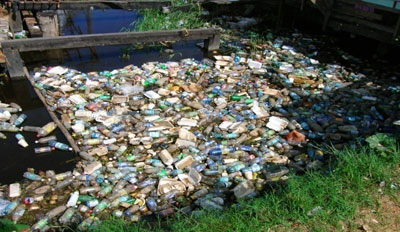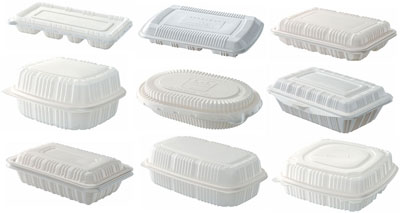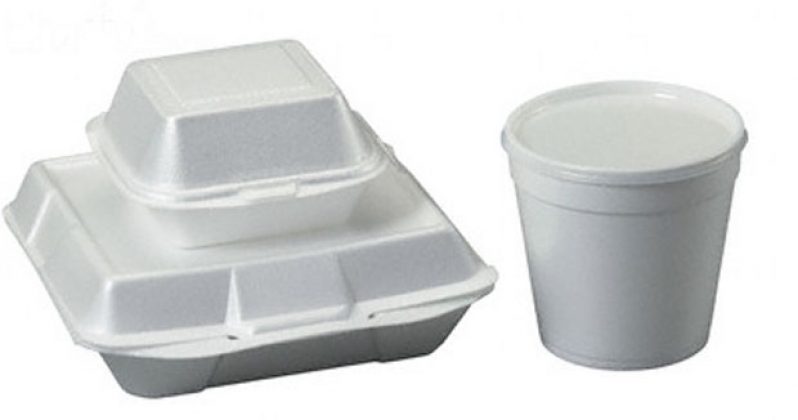TODAY, with a rapidly growing working-class society, the emergence of fast foods restaurants and road-side food vendors has escalated to suit changes in lifestyles. A quick meal on the go and convenient packaging seems to be the order of the day, replacing traditional practices. With more women joining the working class, there seems to be less time for food preparation and eating at home and the cleaning that comes with it.
[box type=”shadow” align=”alignright” width=”200px” ]Fast facts
- Styrofoam does not break down easily and some studies indicate that it may release chemicals when it gets wet, contaminating our precious water sources. It also takes up much more space than paper in our landfills.
- While recycling of Styrofoam is possible, it is extremely expensive and many recycling plants do not accept it. Styrofoam cannot be recycled to make new Styrofoam products. It can only be used to make other products such as packing filler.
- Less water and energy is required to produce Bagasse than Styrofoam, paper, and recycled paper.
- Less CO2 is emitted by creating Bagasse over Styrofoam and paper.
- Trees can take up to 30 years to mature, while sugarcane only takes one year making it a very renewable resource.
[/box]
This changing practice however, is not without its cost to pockets, health and the environment. Increasing consumption, impulse buying and craving for more material things – “stuff”- may appear harmless but in have in fact created a society that generates enormous amounts of solid waste and other environmental problems. Tackling solid waste management in modern society is costly but with the challenge comes opportunities to find creative and effective ways to help solve the problem.
The problem
 From parks to parapets to drains to canals, it is evident that plastics and Styrofoam occupy almost any available space. Of course, these materials did not get there on their own but through our unscrupulous habits. Those who have been following the news recently would have heard of the plans by the Government of Guyana to ban the use of Styrofoam. This decision was no doubt taken since drastic measures are needed to address our waste management issue.
From parks to parapets to drains to canals, it is evident that plastics and Styrofoam occupy almost any available space. Of course, these materials did not get there on their own but through our unscrupulous habits. Those who have been following the news recently would have heard of the plans by the Government of Guyana to ban the use of Styrofoam. This decision was no doubt taken since drastic measures are needed to address our waste management issue.
This week we will examine the implications of this decision to ban Styrofoam and opportunities for all Guyanese to restore our environment.
What is Styrofoam?
Parties, picnics, weddings or even simply family gathering all have one thing in common; the use of Styrofoam for the most part, is inevitable.
Styrofoam is a disposable product made of polystyrene, which is a petroleum-based plastic. Styrofoam is made through a process of heating and cooling. It is convenient, cheap and provides excellent conditions for storage of food and beverages; however, Styrofoam is harmful to the environment and human health if not used properly.
Opportunity for alternatives
 Although Styrofoam has certainly made an impression in modern-day society, there are ways to avoid this harmful product. Standard alternatives include paper and cardboard. These products can be recycled and have less of an impact on the environment. But there are other, more innovative alternatives as well, which are good for business and the environment. With the ban on Styrofoam soon to come into effect in Guyana, there are alternatives which are good for business and the environment.
Although Styrofoam has certainly made an impression in modern-day society, there are ways to avoid this harmful product. Standard alternatives include paper and cardboard. These products can be recycled and have less of an impact on the environment. But there are other, more innovative alternatives as well, which are good for business and the environment. With the ban on Styrofoam soon to come into effect in Guyana, there are alternatives which are good for business and the environment.
Take action!

Being wise and moving towards the use of more sustainable resources is essential for our sustenance. Going green when you eat out or order take away food is now easier than ever. It is now possible to buy organic, compostable, and eco-friendly versions of all types of tableware products including disposable plates, cups, bowls and trays as well as take out containers – made from the renewable resource. Start today, practice using reusable, washable cutlery and crockery and if you have to take way, support that business which use eco-friendly products.
In Guyana, Caribbean Containers Inc. (CCI) is one company involved in recycling cardboard and office paper; they have also introduced a line of biodegradable containers which you can capitalize on for your take-away needs.
The benefits of the impending ban on Styrofoam for the environment include improved aesthetics; reducing the clogging of drains; release of harmful gases in the air; and very importantly savings on landfill space. However, a ban on Styrofoam is not only good for the environment but also for business as it creates an opportunity to create more businesses that can make or supply recyclable food containers.
Sources:
www.greenliving.lovetoknow.com
www.earthresource.org
You can share your ideas and questions by sending your letters to: “The Earth Our Environment”, C/O EIT Division. Environmental Protection Agency, Ganges Street, Sophia, GEORGETOWN or email us at eit.epaguyana@gmail.com
STYROFOAM WORD SEARCH

STYROFOAM
BAGASSE
SUGARCANE
CORNSTARCH
RECYCLED
HARMFUL
ENVIRONMENT
BAN
REDUCE
CONTAINERS
POLYSTYRENE
DISPOSABLE




.png)









